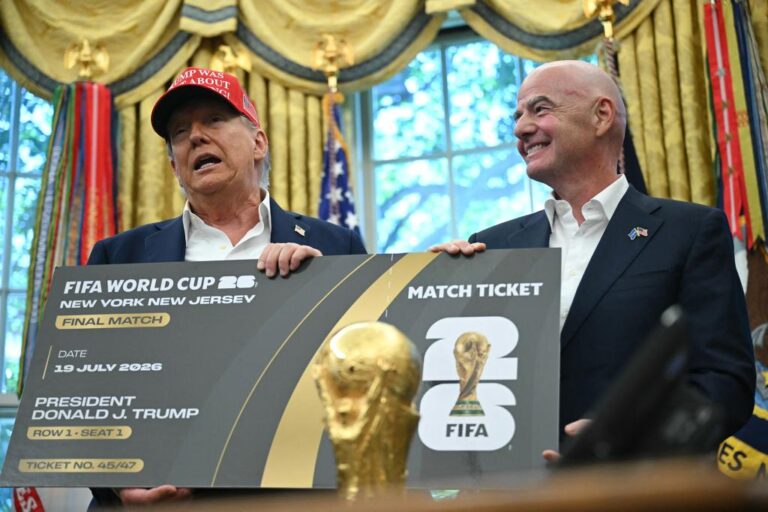FIFA’s Dynamic Pricing for the 2026 World Cup: What Fans Need to Know
FIFA, the international governing body for soccer, has announced its intention to implement dynamic pricing for ticket sales at the 2026 World Cup, co-hosted by the United States, Mexico, and Canada. This approach has stirred considerable debate among fans and experts alike.
Understanding Dynamic Pricing
Dynamic pricing means ticket prices can fluctuate based on demand, similar to how prices change for concert tickets from artists like Beyoncé and Bruce Springsteen. Here’s what this could mean for World Cup attendees:
- Price Surge: Tickets for top-tier seats at the final on July 19, 2026, could exceed $6,700, a staggering increase compared to the approximately $1,700 price of a similar ticket for the final in Qatar in 2022.
- Early Draw: The mentioned price is only for early bird tickets, not hospitality packages, which tend to be even more expensive.
Historical Context: Ticket Pricing Evolution
The last time the U.S. hosted the World Cup in 1994, ticket prices were significantly lower. For instance, a seat at the Brazil-Italy final could be purchased for $60 (around $130 today).
Fast forward to contemporary entertainment practices, and FIFA is aligning itself with the trend toward revenue maximization:
- Concert Industry Comparison: Similar to the music industry, where demand affects pricing, FIFA is stepping into this dynamic pricing model. While some artists have faced backlash, sold-out shows prove it’s a feasible approach.
Fan Experience vs. Revenue Goals
Despite the implementation of dynamic pricing, there are concerns about the impact on the fan experience:
- During the recent Club World Cup in the U.S., many matches featured noticeable empty seats, underscoring that high prices could dilute the atmosphere of this prestigious tournament.
- Tickets for some events were being offered for as low as $13, due to efforts to enhance attendance, while prices surged to nearly $473 days before the match.
The Ethical Questions Surrounding Pricing
Dynamic pricing often raises questions of morality and fairness, as many fans might view it as price gouging. Critics argue that:
- FIFA’s motivation revolves around profit rather than the growth of the game.
- Its not-for-profit status contrasts sharply with its expected revenues of over $13 billion during this World Cup cycle.
FIFA’s Reputation and Governance
FIFA’s history is marred by scandal, from allegations of corruption to its partnerships with controversial governments. Under the leadership of President Gianni Infantino, FIFA has faced scrutiny for courting leaders known for poor human rights records.
Key Issues to Consider:
- Growing the Game: FIFA claims to promote soccer globally, yet it often associates with nations that lack a soccer tradition or demonstrate questionable governance.
- Fan Loyalty: The true spirit of soccer lies in its passionate supporters. FIFA’s tactics may alienate the very individuals who contribute to the excitement and atmosphere of the sport.
Conclusion: What Lies Ahead
FIFA’s approach to dynamic pricing may alienate some fans, leading many to question whether the organization is prioritizing monetary gain over the essence of soccer. For fans:
- Stay Informed: Keep an eye on ticket releases and pricing models leading up to the World Cup.
- Evaluate Options: Consider alternatives, such as community events and screenings, which may allow for more inclusive participation in a sport beloved worldwide.
As excitement builds toward the 2026 World Cup, fans must navigate the complexities of FIFA’s pricing strategy and consider its implications on accessibility and enjoyment of the game they love.
For further details on FIFA’s governance and ticketing practices, you can explore more on FIFA’s official website or check local outlets for specific ticketing news.


